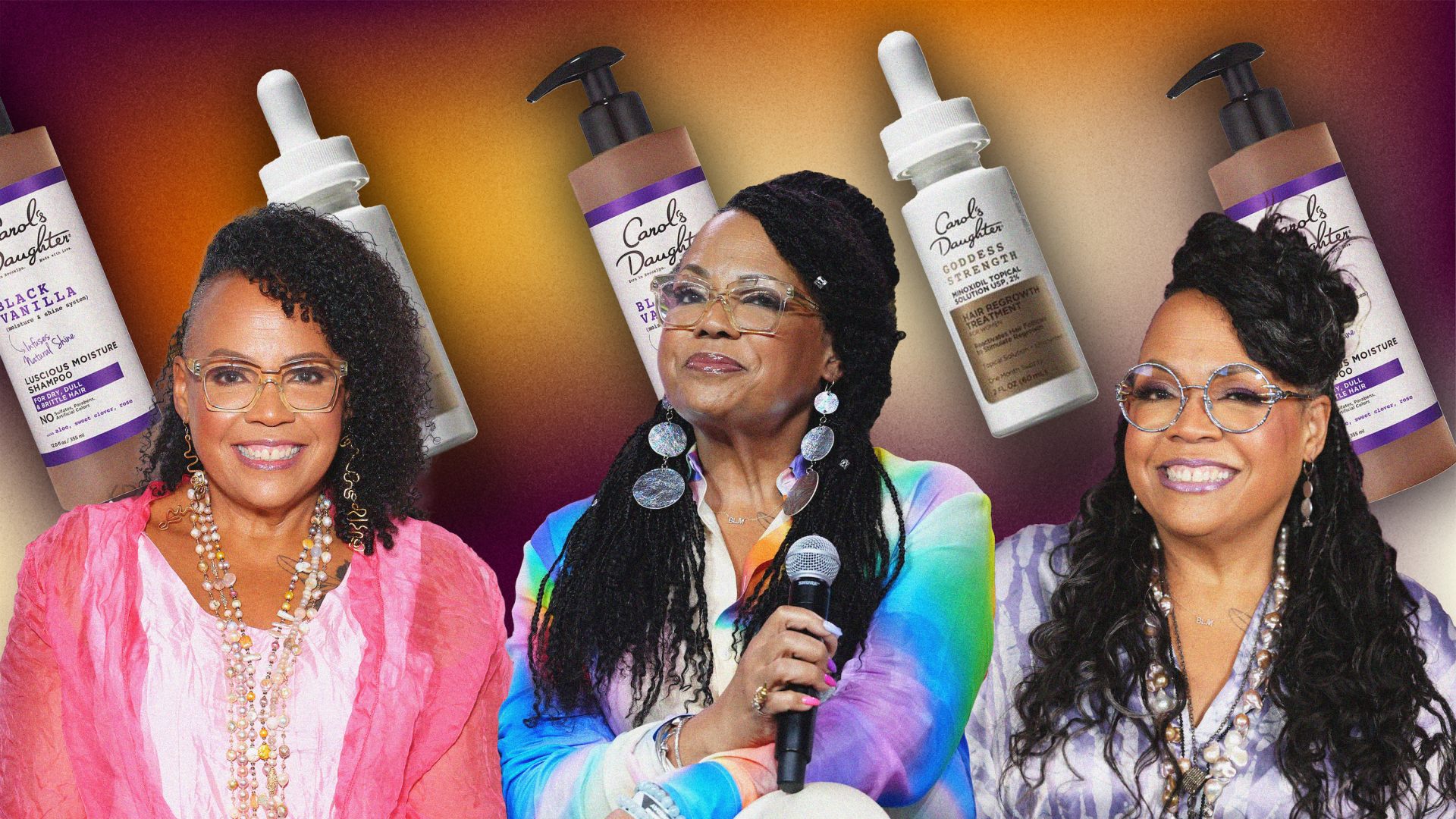
Welcome to MakeUp HerStory. In honor of Women’s History Month, we’ll be highlighting Black women in beauty who are taking the industry by storm and making history in their own right. Each week throughout March, talent—everyone from rising beauty brand founders, to behind-the-scenes PR mavens—will discuss their career journeys, biggest inspirations, and more.
Hair care brand Carol’s Daughter wasn’t meant to grow past the founder’s kitchen. Now, it’s one of the most popular hair care brands on the market and stocked on the shelves of the biggest retailers in the world. In an industry where Black hair is over-treated and under-represented, founder Lisa Price has turned caring for our texture into the foundation of her 40 years of legacy.
From award-winning collections to philanthropic endeavors, the brand is about more than just beauty. Below, Price sits down for a video interview with ESSENCE’s senior beauty editor, Akili King, to discuss how she got into hair care, leaving the L’Oréal family, and what returning to the brand’s independently-owned roots means for Carol’s Daughter.
Carol’s Daughter was born in the kitchen
“In 1993, I didn’t think that I was launching a brand,” Lisa Price tells ESSENCE. “I thought that I loved making fragrance and body care products and my mom said ‘they smell really good. I think people would buy them.’” Starting as a way to make extra money, Price didn’t think of growing Carol’s Daughter into hair care—but her customers practically begged her to.
“I remember putting these essential oils together in a base of olive oil,” she says, infusing lavender and sage into a hair oil as her first hair care product. Using it on her hair first, “it made me realize that I settled for what I could get for hair care.”
Remembering her mother
Since then, the brand, named after her late mother, has earned global acclaim. “She was not a business person, but some of the best business lessons that I live by today I learned from my mother,” Price says. “I named the company Carol’s Daughter because it was something I was very proud of.”
After her mother passed in 2003, Price says her brand is a constant memory of the person who meant the most to her. “Every day I saw her face, I saw her name,” she says. From the hate she had for makeup (all she had was an old mascara, blush, and lipstick) to her glass half-full attitude, “I’m grateful that I named the company what I did because she never leaves my side.”
The L’Oreal acquisition and return to independent ownership
As the brand grew, L’Oreal took note and acquired Carol’s Daughter in 2014. “There’s this perception that you sell and you disappear,” Price says. From developing products and writing copy, to researching ingredients and talking to consumers, she’s been a huge part of the brand’s success even after the acquisition.
This month, however, Price took her brand back, returning to independent ownership after ten years under the cosmetics giant. “Now I don’t have to walk into a corporate board room and talk to people,” she says, taking the brand back to her kitchen table. “That’s how we built it,” she says. “It feels good to be back there.”
Building generational wealth, she goes on to discuss the future of Carol’s Daughter and what it’ll mean for her great grandchildren to see Black brands on the shelves. “There’s Carol’s Daughter, there’s SheaMoisture, there’s Mielle, there’s Camille Rose,” she says. “We have so many more [Black] hair brands. I didn’t get to grow up with that.”
Carol’s Daughter and Mama Glow’s Love Delivered
Taking a similar message to Love Delivered, Price’s Black maternal health platform, investing in the beauty and health of Black families has proven to be her undying passion. In partnership with doula and Mama Glow founder, Latham Thomas, the platform has been the lovechild between Mama Glow and Carol’s Daughter since 2021.
Black women in the US experience significantly higher maternal mortality rates than white women, with data from 2023 showing a rate of 50.3 deaths per 100,000 live births, compared to 14.5 for white women. “The last thing you want is a parent going into delivery feeling scared,” Price says, providing support and resources to Black families. “You want them to feel confident and empowered and you want their birthing partner to feel they can be their advocate.”
Self-care for the caregiver
While she spends most of her time caring for others, her self care is all about getting—and staying—active. “I’ve had to go to physical therapy,” she says, working through a back issue she faced back in November. “He’s taught me how to walk, move and exercise.” Meanwhile, daily magnesium baths improve her sleep, mood, and overall well being, she’s also a movie, fragrance, and knitting buff. “I have to take care of myself,” she says. “There’s no negotiation.”